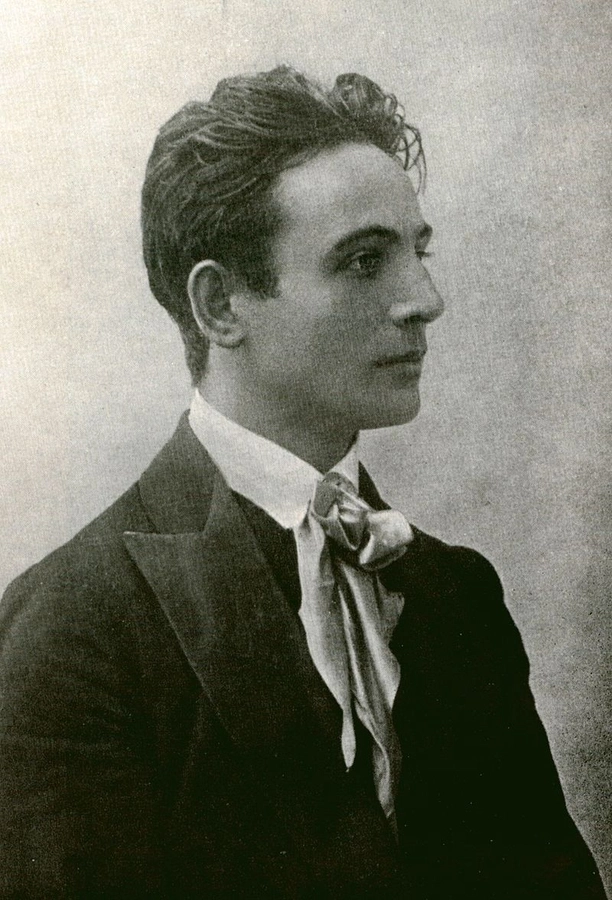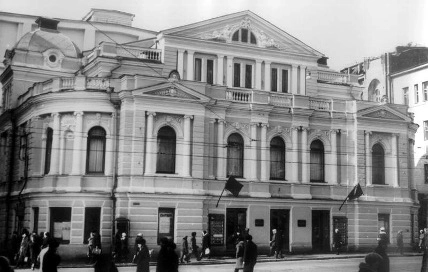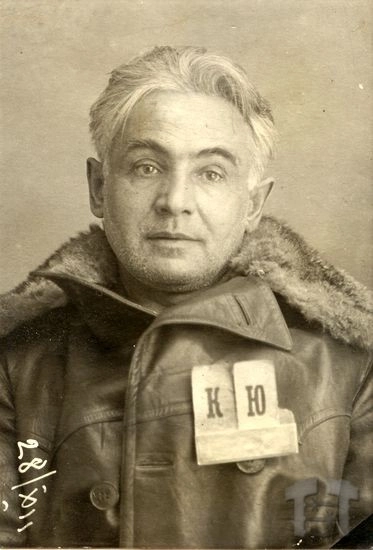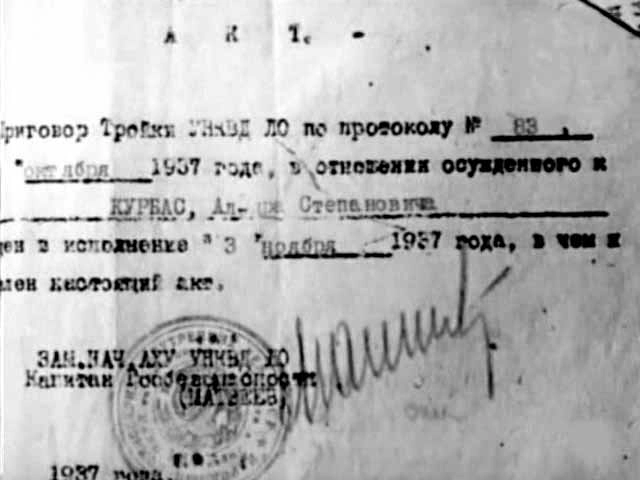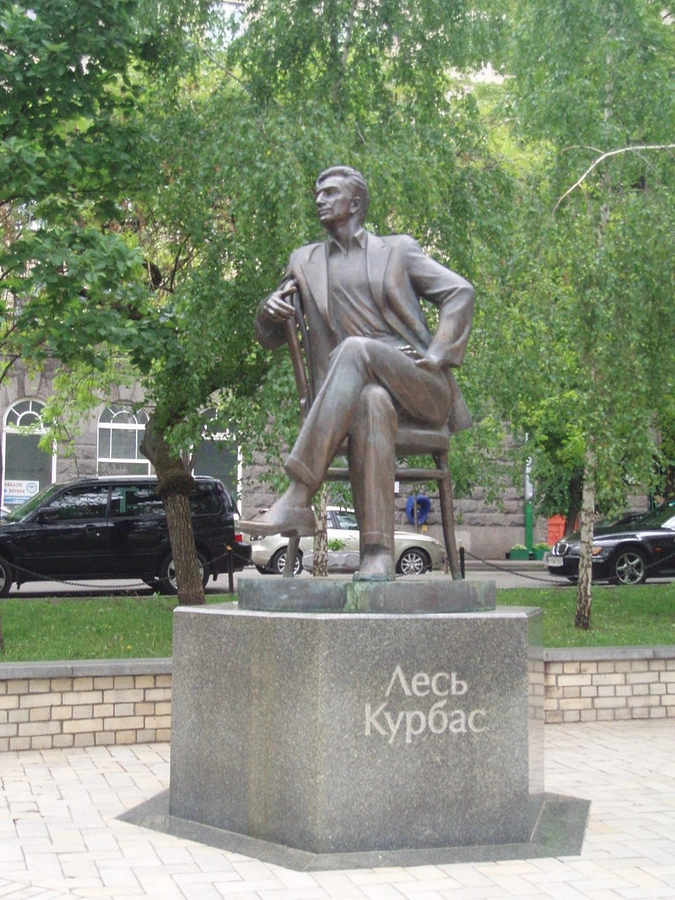Theaters, streets and art centers bear the name of Les Kurbas, books and theses are written about him, his creative system is studied at art schools, and his phenomenon is scrutinized by numerous scholars and experts. A hundred years ago, the young man from western Ukraine, who preferred philosophical books and meditations to noisy pastimes, threw down the gauntlet to the old Ukrainian theater.
Les Kurbas (full name: Oleksandr-Zenon Kurbas), the famous Ukrainian director, philosopher, publicist and teacher, was born on Feb. 25, 1887, in the small town of Sambir, 70 km southwest of Lviv. His parents, who were actors, did their best to give him the finest education they could afford. He was one of the brightest students at the Ternopil gymnasium, and then Lviv University, where he took an active part in the student movement advocating Ukrainianization as opposed to Polonization.
JOIN US ON TELEGRAM
Follow our coverage of the war on the @Kyivpost_official.
In protest against the university leadership’s policy, he left Lviv for Vienna University, where he studied philosophy and took lectures in Slavistics. He also graduated from a drama school at the Vienna Conservatory.
Les Kurbas, c. 1908
He started out at several theaters in western Ukraine where he performed as an actor, but after several years he made what he described as a “decisive upshift,” becoming a stage director.
In the fall of 1917, two weeks before the Bolshevik coup, he founded and headed the Young Theater in Kyiv, and in March 1922 the Berezil Theater in Kharkiv. Berezil became a unique, innovative union of likeminded theater enthusiasts, with more than ten labs and workshops, including four in Kyiv. The others worked in Odesa and three towns near Kyiv. He sent his disciples to those labs to stage theatrical performances there. “My choice is Berezil, because it is a tempest, because it is a force, because it is an upheaval from which summer is born,” wrote Kurbas.

New York’s Ukrainian Museum: Opening Out and Taking Back
Berezil theater, Kharkiv. In 1922-1933, its walls witnessed a grandiose theatrical experiment under the guidance of the legendary reformer of the Ukrainian stage who was later expurgated as a “formalist” and a “political felon.” Here began his last road to the GULAG.
Raised at the threshold of great historical turbulence and transformations, Kurbas filled the stage with the sensation and spirit of his time, its dynamics and pulse. Destroying frozen forms of the old realistic art, he created a theater of revolutionary experiment, a theater that did not mirror life but turned it into a new esthetic reality; a theater of symbols and metaphors, of expression and grotesque; a theater dominated by the spirit of studio work and creative quest; a theater where the actors were masters of any genre – “intelligent harlequins,” as he called them.
Kurbas said, “Theater must be very modern.” He created his own theatrical system and brought up a generation of actors, directors, playwrights and stage designers who became the pride of Ukrainian theater.
Les Taniuk, the renowned Ukrainian stage and film director, member of parliament and public activist and one of the leaders of the People’s Rukh of Ukraine in the 1990s, described Kurbas as “a figure of the Renaissance scale” and a powerful personality: “I would say he was more than just a director. He was a philosopher who modeled a new reality. Kurbas was a trailblazer. When someone says that Kurbas reformed Ukrainian theater, I can’t agree with that. Kurbas didn’t just reform Ukrainian theater. He formed it.”
Cut down by the NKVD in his prime
Kurbas dreamed of elevating the Ukrainian stage up to the world level, but his wings were clipped at takeoff. The irrepressible reformer, who did not fit the canons of socialist realism and went against the grain of Communist policy, was excommunicated from theater. In 1933, he was arrested, charged with “counterrevolutionary and nationalist activities” and thrown into the chasm of Stalin’s concentration camps, where the best sons and daughters of Ukraine were exterminated.
Les Kurbas, Dec. 28, 1933, the day of his arrest
Sentenced to five years of “correctional labor,” Kurbas never gave up thinking about the stage. Even in the camp, where he and his fellow prisoners felled trees, he organized a theater where he staged drama, opera and variety performances.
The theater was supervised and controlled by the NKVD (People’s Commissariat of Internal Affairs, the predecessor of the KGB), so the actors had to play in the Aesopian language to euphemize the director’s ideas.
Determined to “cleanse” the civilian population of “alien ideological elements,” Stalin unleashed abominable reprisals. There was even a widespread practice of ordering exact numbers of people to be executed in designated districts. NKVD troikas rubberstamped death sentences and the actual number very often exceeded the ordered one.
Excerpt from KGB archives:
“Oct. 9, 1937. Convict Kurbas has not changed his counterrevolutionary position and continued the nationalist propaganda, evincing terrorist intentions. In this connection, the Special Department of the NKVD resolved to sentence A. S. Kurbas to capital punishment by firing squad.”
On Nov. 3, 1937, Kurbas and 700 other convicts, the cream of the Ukrainian intelligentsia, were executed in the ignominious Sandarmokh camp in Karelia, northwestern Russia. Their naked bodies were dumped into a ditch…
Act of execution of Les Kurbas. Nov. 3, 1937
The Stalin regime killed the Ukrainian genius but was unable to destroy his spirit. The seeds sown by him on the Ukrainian stage sprouted in the following generations of actors and directors, in great works of theatrical art, and in bold innovations of modern revolutionaries of theater.
Monument to Les Kurbas in downtown Kyiv
You can also highlight the text and press Ctrl + Enter



